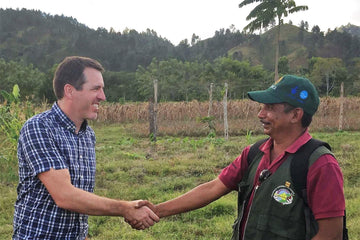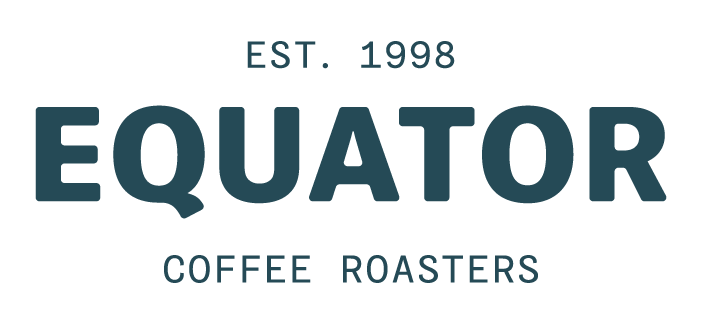Fair Trade or Direct Trade: How Coffee Roasters Procure Coffee Beans
by Equator Coffee Roasters on Mar 28, 2022

There is a growing movement for understanding where your food comes from. From the meat on your dinner table to the almond milk in your fridge, understanding how your food gets from the land to your table empowers you to make purchasing decisions that are inline with your personal values. The same cannot be more true with coffee. In this series, we will cover coffee from crop to cup.
Coffee beans travel a long and winding road to get from the plant to your cup, making it easy for information about the bean’s growing and harvesting methods to get lost along the way. These murky origins make it difficult for coffee drinkers to make informed decisions when it comes to their morning brew.
In today’s blog, we’ll look at how coffee roasters procure coffee beans, and what to look for when purchasing coffee to ensure that your beans are both ethical and delicious.
First, let’s examine some sustainability vocabulary that often pops up in discussions around ethical coffee: fair trade and direct trade. These terms are sometimes used interchangeably, but they have very different meanings and understanding them is the first step to understanding what’s in your cup.
Fair Trade
Fair trade is a certification issued by fair trade organizations, such as the Fairtrade International label. Producers seeking this certification must meet a set of criteria that govern minimum prices, workers’ rights, and sustainability standards. This certification helps ensure ethical sourcing, as it prohibits exploitative practices such as child or forced labour. Anyone wishing to use this designation, such as farmers or importers, must apply, provide documentation, and pay a fee. The Fair Trade certification has come under fire by certain critics who consider the governing criteria too limiting and believe that the overall designation is overly regulated.
Direct Trade
Direct trade is a method of sourcing coffee that involves roasters forging relationships with specialty importers or directly with farmers to create a more transparent pipeline from plant to cup. Unlike the fair trade certification, which is regulated by a governing body, each roaster or importer sets their own direct trade standards and defines this term in their own way. To complicate matters, some believe that the use of importers as an intermediary negates the “direct” aspect of this approach. Because this term is unregulated, it can be hard to understand what the “direct trade” label on a bag of beans really means.
Our Hybrid Approach
The Equator team takes a hybrid approach to sourcing coffee ethically. Along with 22 other community-based coffee roasters, Equator is a member-owner of Cooperative Coffees (Coop Coffees), a green bean buying co-op and importer. Coop Coffees is certified by Fairtrade International, and just like Equator, they are also a Certified B Corporation.
Coop Coffees is committed to what they call fair and direct trade relationships, and they leverage the World Fair Trade Organization and Fair Trade Federation’s “Basic Principles” to create their trading policies. These principles include:
- Creating opportunities for marginalized producers
- Developing transparent relationships at every stage of the supply chain
- Sharing information and best practices to help farmers build capacity
- Promoting fair trade standards around pricing, human rights, and environmental issues
The Coop Coffees standards go beyond baseline certifications or minimum prices structures, and their approach to building the coffee supply chain allows our team to source high-quality, traceable, great-tasting coffee while creating sustainable livelihoods for small-scale farmers across the world.
